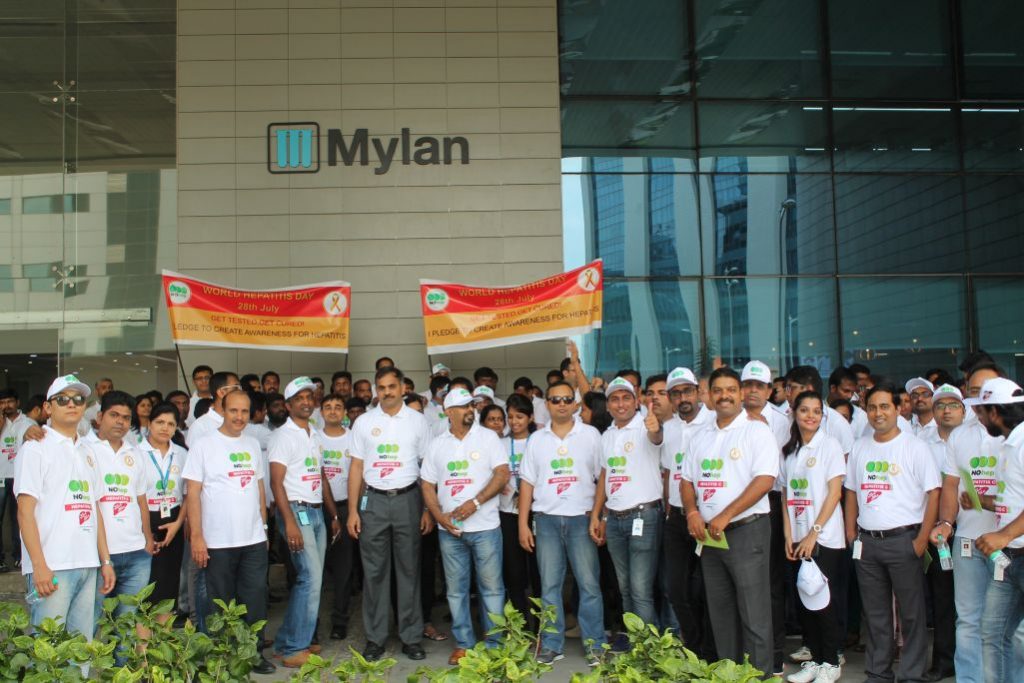It was an unusual sight in a bustling corporate hub in Bangalore, when over 300 professionals representing several corporate groups, walked for the cause of creating awareness about hepatitis. This walk was organized by Mylan, a leading pharmaceutical company, on World Hepatitis Day, to create awareness about ‘NOhep’ and about eliminating hepatitis by 2030.
 “Mylan recognizes the urgent need in India for affordable health solutions for the treatment and prevention of Hepatitis, where roughly 12 million people are infected with hepatitis C virus and 40 million people are infected with hepatitis B virus. We are committed to reducing Hepatitis disease burden in India and to create better health for a better world. We are introducing various educational initiatives in India to raise awareness of the disease and educate doctors on treatment options.†said Mr. Kumar Subramaniam, Head of India, Commercial Operations, Mylan.
“Mylan recognizes the urgent need in India for affordable health solutions for the treatment and prevention of Hepatitis, where roughly 12 million people are infected with hepatitis C virus and 40 million people are infected with hepatitis B virus. We are committed to reducing Hepatitis disease burden in India and to create better health for a better world. We are introducing various educational initiatives in India to raise awareness of the disease and educate doctors on treatment options.†said Mr. Kumar Subramaniam, Head of India, Commercial Operations, Mylan.
Hepatitis A and E are water-borne infections, and hepatitis B and C are blood-borne viruses. While hepatitis A and B have vaccines to prevent their spread, hepatitis C does not, putting people at risk of infection. In most infected areas in the country, hepatitis C is primarily caused by blood transfusions with unscreened blood, surgical procedures that follow unsafe practices, and the use of unsterile needles by intravenous drug users. Secondary causes include sharing personal items such as razors and syringes used to inject medications with a person infected with the virus. It may also get transmitted through unprotected sex. Hepatitis C can lead to chronic liver disease, even liver cancer. In India, HCV related deaths are estimated to be as high as 96,000 every year.




